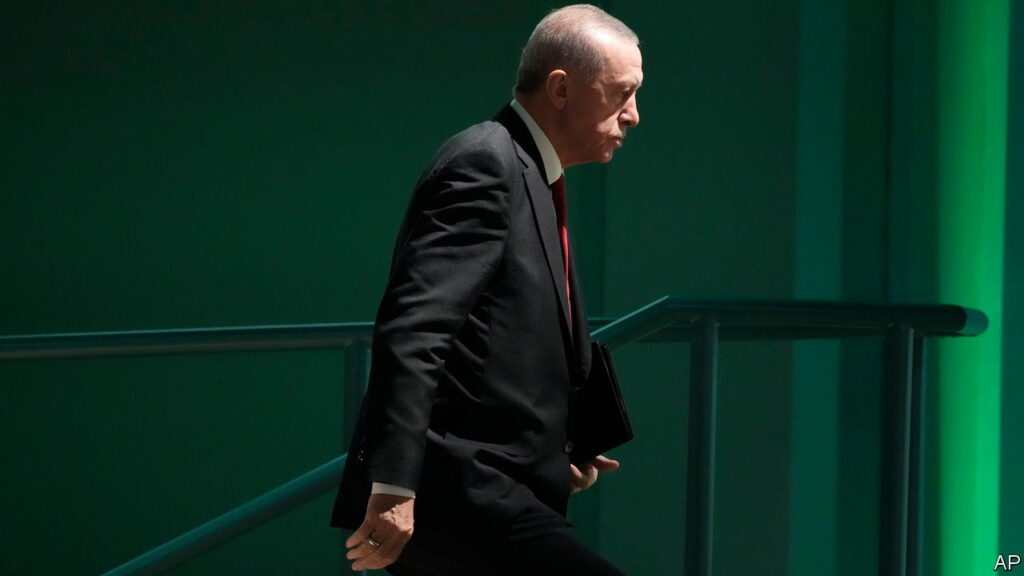For most countries, a 10% drop in the value of their dollar-denominated currency in just over five months would be alarming. But for Turkey, it’s a respite. After years of reckless lending and spending, the country’s new economic team, appointed after President Recep Tayyip Erdogan’s election victory in May, is trying to get it back on track. The central bank, which previously stoked inflation with low interest rates, has raised interest rates by a whopping 31.5 percentage points since June. As a result, economic growth has slumped but the inflation outlook has improved. Prices rose 62% year-on-year in November, but monthly inflation has eased to just over 3% in recent months from a blistering 9% in July and August. The Turkish lira, which fell nearly 30% against the dollar earlier this year, continues to fall, but at a much slower pace.
 Image: The Economist
Image: The Economist
Things are improving in other areas, too. Turkey’s new Interior Minister, Ali Yerlikaya, has launched a belated crackdown on organized crime, and the evening news is now filled with footage of special police units breaking down doors and arresting suspected drug lords, arms dealers, and human traffickers, many of them foreigners. Worryingly, this has revealed Turkey’s role as a magnet for crime syndicates from the Balkans to South America.


